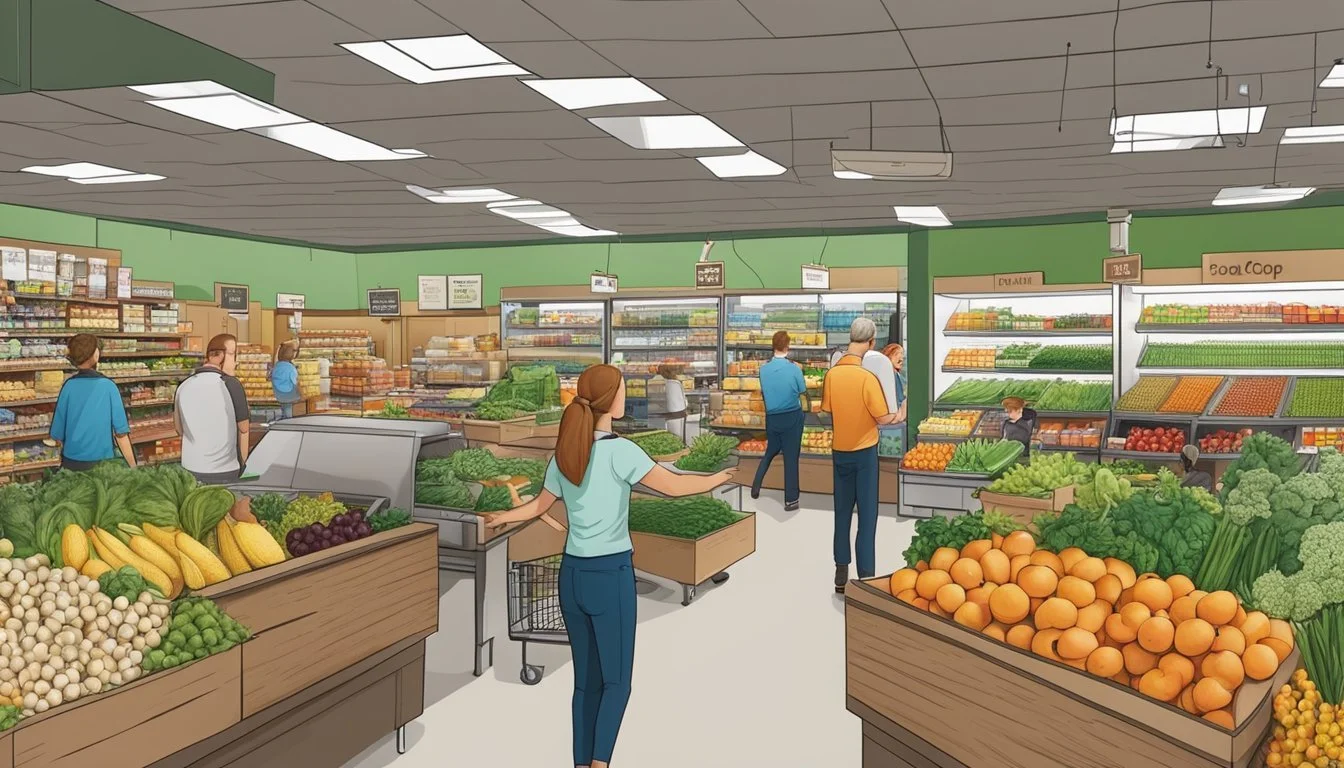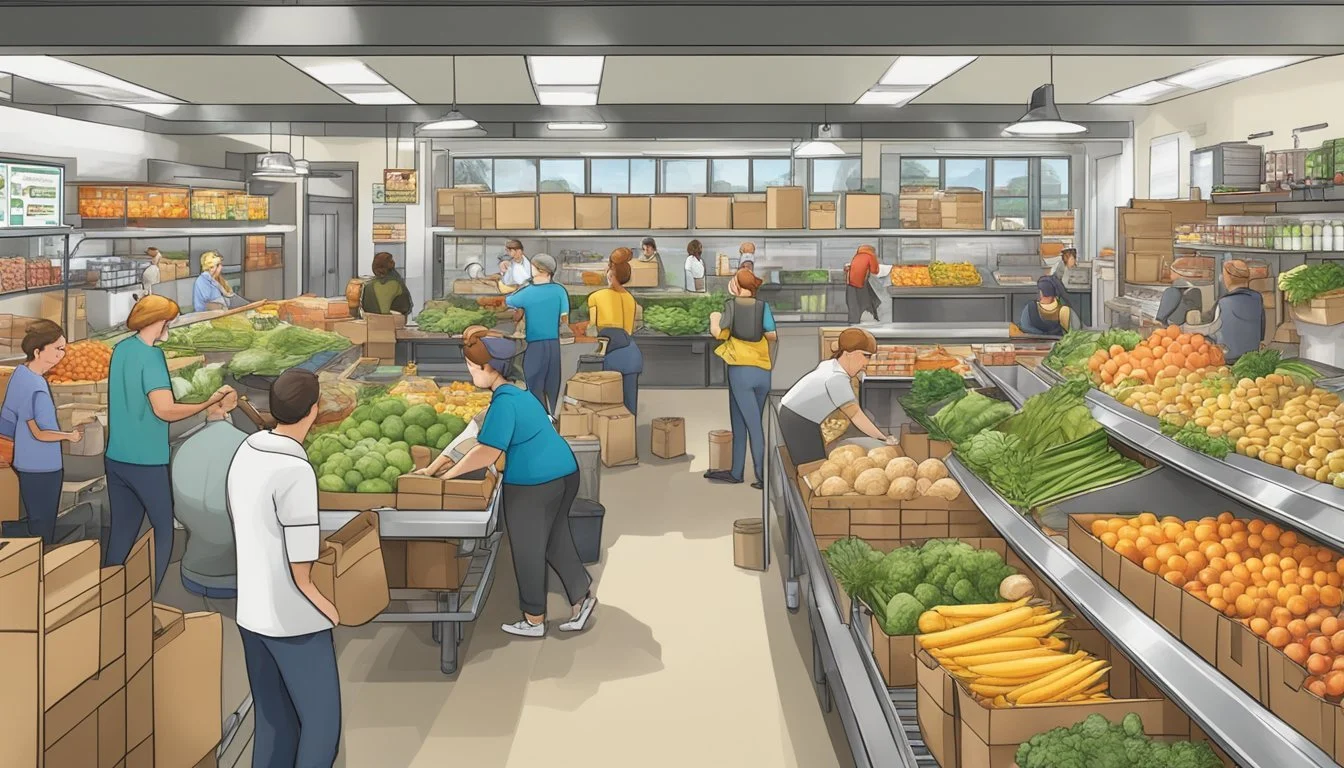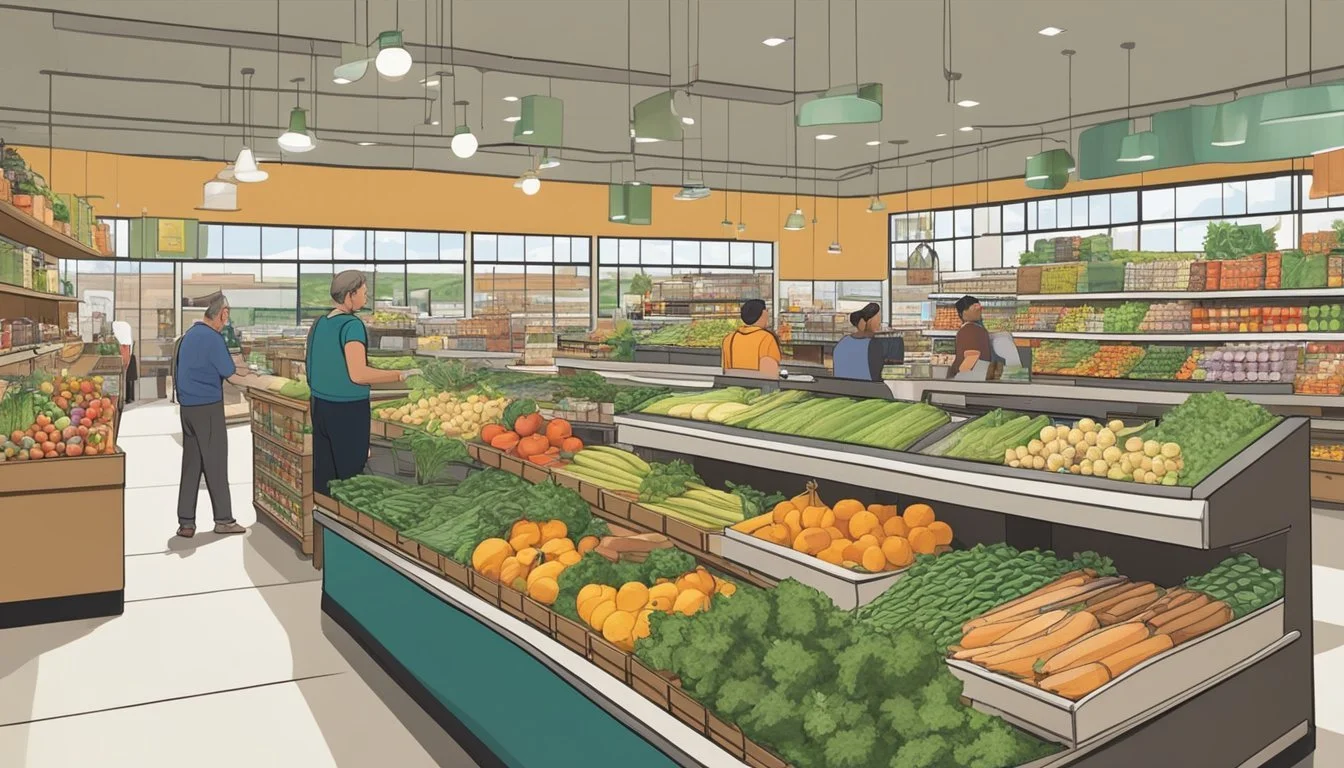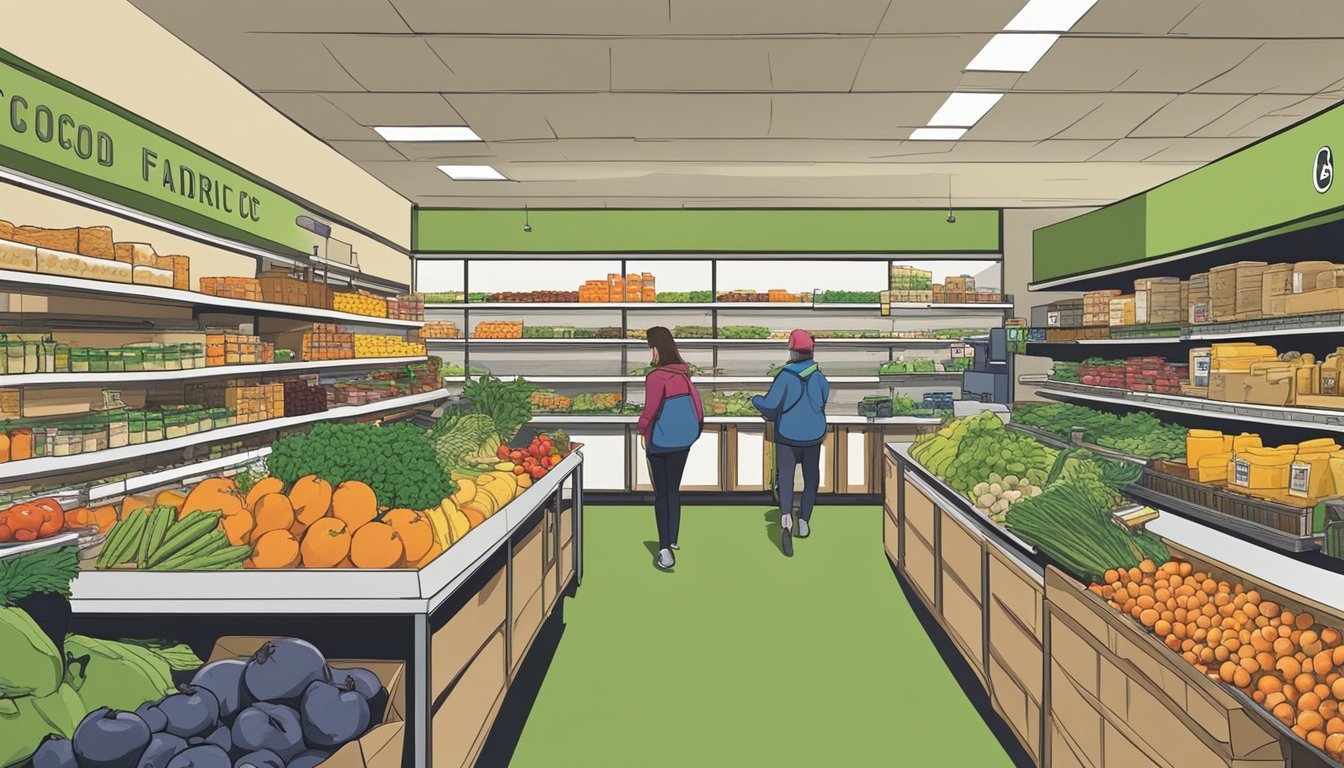Guide to Food Co-Ops in Fargo, ND
Navigating Your Local Cooperative Scene
In Fargo, North Dakota, food co-ops serve as a cornerstone for community and sustainability. They are member-owned grocery stores that prioritize local, organic, and natural food options. These co-ops are more than just shopping destinations; they reflect a commitment to healthier lifestyles and economic principles that support local farmers and producers.
The Prairie Roots Food Co-op stands out as a notable example in the region. Its mission to foster a healthier community has resonated deeply with the residents of Fargo. By providing access to an array of natural and organic products, Prairie Roots has become a hub for those seeking food that supports both personal well-being and the local economy.
Co-ops like Prairie Roots are often at the forefront of the local food movement, pushing for a food system that values transparency, ethical sourcing, and environmental stewardship. They offer an alternative to conventional grocery stores and play a significant role in shaping food consumption patterns and the local cultural landscape.
What Is a Food Co-Op?
Food co-ops are community-centric grocery entities that prioritize local foods and contribute to the development of a healthy community through collective ownership and management.
Defining Food Co-Ops
A food cooperative, or food co-op, is a type of grocery store that stands out by being collectively owned and managed by its members. These members could include shoppers, workers, or a combination of both. Food co-ops focus on providing access to quality, often local and organic, food products. They operate on the principles of democracy, meaning that each member has a say in decisions, from the products stocked to the governance of the store itself.
The Role of Community in Food Co-Ops
Community is the cornerstone of a food co-op’s existence and mission. These co-ops not only aim to offer healthier food options but also seek to strengthen the local food system by sourcing from nearby producers. This symbiotic relationship enhances the vitality of the local economy and fosters a healthy community. Members are drawn together by a commitment to these common goals, making food co-ops more than just a place to shop—they become a hub for like-minded individuals who support sustainable and ethical food practices.
History and Types of Co-Ops in Fargo, ND
In Fargo, North Dakota, food co-ops serve as community-focused alternatives to traditional grocery stores, emphasizing local, organic, and natural foods. The establishment of these co-ops is a testament to Fargo’s commitment to sustainable living and economic solidarity within the community.
Prairie Roots Food Co-Op
Prairie Roots Food Co-Op stands out as a pivotal organization in the Fargo community, with a strong presence on social media and a reputation for advocating for accessible natural and organic foods. Establishing its footprint in Fargo, it operates with extended hours, catering to a wide audience interested in supporting local producers and sustainable practices. Its launch was a response to an increasing demand from the public for environmentally conscious shopping alternatives, and it endeavors to offer a full range of departments akin to a traditional grocery store but with a co-op philosophy.
Historic Context
The conversation around co-ops in Fargo didn't happen overnight; it harks back to 2010 when the initial discussions about creating a cooperative began. This reflects a broader historical narrative of co-ops in the U.S. that originated from a collective need to meet community necessities by leveraging the power of cooperative work and purchasing. Fargo's history with food co-ops is not just about grocery shopping—it's integrally connected to cultural shifts towards sustainability and community welfare.
Different Models of Food Co-Ops
Food co-ops in Fargo, such as Prairie Roots Food Co-Op, highlight a variety of cooperative models. Each model provides unique benefits to its members and the broader community:
Consumer Co-ops: Owned and democratically governed by customers, focusing on high-quality food and consumer satisfaction.
Worker Co-ops: Owned and self-managed by the employees, ensuring fair working conditions and wages.
Producer Co-ops: Operated by local farmers and producers to collectively market and sell their products, strengthening the local economy.
Each model nurtures a distinct aspect of Fargo's local food economy, collectively supporting a more equitable and sustainable food system in North Dakota.
Benefits of Joining a Food Co-Op
Joining a food co-op in Fargo, ND, offers a range of advantages, from economic benefits to positive social and ethical impacts, and enhanced access to nutritious food.
Economic Advantages
Members of food co-ops enjoy economic benefits through better prices and cost savings. Since co-ops work on a collective buying model, they often purchase goods in bulk, resulting in wholesale prices. This allows members to save on grocery costs while still accessing high-quality food items. Additionally, being a cooperative means that any profits are often returned to the members or reinvested in the co-op, further supporting the local economy and its members.
Cost Savings: Bulk purchasing leads to reduced prices for the community.
Profit Reinvestment: Any surplus is redistributed to members or towards community improvement.
Social and Ethical Impact
Food co-ops foster a strong sense of community and encourage local engagement. They are member-owned and operated, which means members have a say in the operations and decisions. This democratic approach ensures that the co-op aligns with the ethical values of its members, often prioritizing sustainable and fair-trade practices.
Community Engagement: Members actively contribute to the co-op's governance and activities.
Ethical Practices: Co-ops often uphold values like sustainability, fairness, and local sourcing.
Health and Nutrition
Those who join a food co-op gain access to fresh, organic, and natural food options. Co-ops prioritize stocking products that promote a healthy lifestyle, ranging from organic produce to minimally-processed natural foods. This support for health-focused products encourages a healthier community and provides opportunities for members to discover new food choices.
Organic Produce: Availability of chemical-free fruits and vegetables.
Natural Foods: Access to minimally processed, non-artificial food items.
By joining a food co-op, members in Fargo, ND can take advantage of various benefits that positively influence their wallets, their social and ethical values, and their overall health.
How Food Co-Ops Support Local Farmers
Food cooperatives (co-ops) in Fargo, ND, have a significant role in bolstering the local agricultural economy by establishing firm partnerships with area farmers and making a substantial impact on the Red River Valley's local food system.
Partnerships with Local Farms
Fargo's food co-ops actively seek to establish and maintain strong partnerships with local farms. They prioritize purchasing produce, meat, dairy, and other agricultural commodities directly from farmers in the surrounding areas. These collaborations often result in the agriculture being featured prominently in the co-op's offerings. This relationship not only allows farmers to have a reliable outlet for their goods but also ensures a steady supply of fresh, locally produced food for co-op members.
Direct Purchasing: By buying straight from the farm, co-ops provide farmers with a stable market and fair prices.
Seasonal Promotions: Co-ops often highlight seasonal items, benefiting farmers by promoting their freshest offerings at peak harvest.
Impact on the Red River Valley
The partnership between food co-ops and local farmers resonates through the Red River Valley, influencing both the local food system and the broader economy:
Economic Support: Money spent at co-ops circulates in the community, supporting local jobs and contributing to the economic vitality of the Red River Valley.
Local Food System Strength: By backing area farmers, co-ops contribute to a robust local food system, ensuring diversity and resilience in the region's food sources.
Local Wages: Co-ops often spend a considerable portion of their revenue on local wages, benefiting the regional economy.
Community Stability: The success of local farms enhances community stability, preserving the agricultural landscape of the Red River Valley.
Understanding Co-Op Membership
Food co-ops in Fargo, ND, provide a unique opportunity for members to be part of a retail food landscape that emphasizes community and shared resources. Understanding how membership works is crucial for anyone considering joining such an endeavor.
Membership Structure
At its core, a food co-op operates on a membership-based structure. Members are the individuals and families who pay a one-time investment or purchase shares, contributing to the co-op's capital base. This financial model ensures that the retail food co-op is directly supported by those it serves, allowing for better alignment with member needs and preferences.
Membership at a food co-op typically involves:
Equity Contribution: A financial commitment that secures membership.
Voting Rights: Each member typically has one vote in co-op decisions.
Voluntary Participation: Members may choose to engage at various levels.
Member Benefits and Responsibilities
Benefits include having a say in the operations of the co-op, access to high-quality natural and organic foods, and often, a share in any profits in the form of rebates or discounts. This model pools resources, enabling the co-op to offer competitive prices and sustain community-focused initiatives.
However, responsibilities accompany these benefits. Members may be asked to participate in:
Decision-Making: Attending meetings to vote on significant issues.
Volunteering: Contributing time to support co-op operations.
Members contribute not just capital but also help shape the co-op’s growth and impact in Fargo.
Products and Services Offered
In Fargo, ND, food co-ops offer a unique shopping experience focused on providing access to a variety of local, organic, and natural products. They cater to the community’s need for high-quality foods and specialty grocery items.
Range of Produce and Groceries
Food co-ops in Fargo are known for their wide array of fresh produce, including both conventional and organic options. Customers can find seasonal fruits and vegetables sourced from local farms, ensuring peak freshness and support for the local economy. Groceries offered in these cooperatives often include:
Fruits and Vegetables: A seasonal selection from local producers.
Grains and Baking Supplies: Whole and multigrain products, including gluten-free options.
Dairy Products: Milk, cheese, and yogurt from regional dairies.
Meat: A range of cuts from local suppliers including beef, pork, and poultry.
Pantry Staples: A variety of beans, pastas, sauces, and condiments.
Specialty Departments
Food co-ops in Fargo distinguish themselves with specialty departments dedicated to meeting specific dietary needs and preferences. These may include:
Deli: Offers fresh-made salads, sandwiches, and other ready-to-eat items, often using ingredients from the store's own selection.
Meat and Dairy: Emphasis on local, sustainable, and humanely-raised meat products, along with a selection of artisanal cheeses and fresh dairy.
Health and Wellness: Natural remedies and supplements alongside a range of personal care products.
These co-ops are committed to high-quality offerings, transparent sourcing, and fostering a community-oriented shopping environment.
How to Participate in a Food Co-Op
Participation in a food co-op often involves active community engagement and the implementation of member suggestions. This allows members to contribute directly to the co-op's growth and operations.
Volunteering and Community Engagement
At a food co-op, volunteering is a crucial component that supports its day-to-day functions. Interested individuals can engage in various roles, from stocking shelves to assisting at check-out. Regular volunteer opportunities foster a strong sense of ownership and community spirit. Volunteering schedules are typically flexible, making it possible to contribute at one's convenience.
Roles may include:
Stocking and inventory management
Customer service
Community outreach
Administrative tasks
Implementation of Member Suggestions
Food co-ops are member-centered organizations, and they thrive on the contributions and insights of their members. Implementing member suggestions can lead to improvements in product selection, store policies, and overall operations. To ensure the collective voice shapes the co-op, there are formal systems to capture and review these suggestions.
Process for member suggestions:
Submission of ideas via suggestion box or online platform
Regular member meetings to discuss and vote on suggestions
Updates on the status of suggestions in member communication outlets
Challenges Facing Food Co-Ops
Food cooperatives in Fargo, ND, like those in other areas, are navigating a complex landscape of economic pressures and competitive market forces.
Economic Challenges
Food co-ops often face significant economic hurdles due to operational costs, which include sourcing natural, organic, and local foods that may come with higher price tags. They manage the balance between maintaining affordability for their members and ensuring the financial sustainability of the co-op. Access to adequate resources is essential for survival, which includes securing capital for initial setup and ongoing expenses.
Market Competition
Competition in the retail environment is intense. Food co-ops contend with large retail food co-ops, big box retailers, and online markets that have encroached upon the domain previously occupied by smaller co-ops. These entities often have the ability to offer lower prices and a wider range of products, making it imperative for local food co-ops to differentiate themselves and stay relevant to their customers' needs.
Future of Food Co-Ops in Fargo, ND
The landscape for food co-ops in Fargo, North Dakota, is poised for growth and technological integration. This section explores the trajectory of food co-ops with a focus on expansion within the local food movement and advancing through technology.
Expanding the Local Food Movement
In Fargo, the commitment to local foods is driving the expansion of food co-ops. These co-ops are serving as pivotal access points for locally-sourced products, aligning with consumer age demographics that prefer sustainable and community-oriented food options. Initiatives like Up & Coming 2024, backed by FCI (Food Co-op Initiative), hint at a strategic push for new food co-op development, ensuring residents have increased access to local produce and goods.
Key Factors Contributing to Expansion:
Buyer preference for local and sustainable foods
Investments and grants fueling economic growth in the sector
Legislation supporting the cooperative business model
Technological Advancements
Food co-ops in Fargo are beginning to embrace technology to enhance operations and customer experiences. From inventory management systems to online shopping platforms, technology is setting the stage for food co-ops to streamline their processes and extend their reach. The integration of these technological tools not only aids in day-to-day management but also appeals to a tech-savvy consumer base looking for convenience in their shopping habits.
Technologies Being Implemented:
Electronic Point of Sale (EPOS) systems
Customer relationship management (CRM) software
Online and mobile ordering systems
Conclusion
Fargo's commitment to fostering a sense of community through the operation and support of food co-ops is evident. Businesses like Prairie Roots Food Co-op play a crucial role in connecting consumers with natural, organic, and local foods, which supports local producers and promotes healthier lifestyle choices.
Residents have the opportunity to participate in a food system that values sustainability and access to quality foods. The co-op's efforts to address food insecurity highlight a proactive approach to ensuring that all community members have the necessary resources to obtain nutritious food. This not only empowers individuals but also strengthens the community as a whole.
For individuals seeking a more involved experience, food co-ops in Fargo offer a path to membership and community engagement, allowing them to contribute to the co-op's growth and have a voice in its operations.
In summary, food co-ops in Fargo are more than just retail outlets; they are integral parts of a thriving ecosystem dedicated to health, sustainability, and community empowerment.










